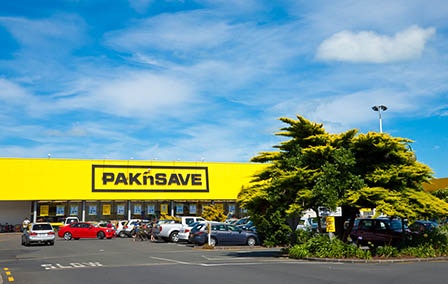High prices, high profits and high barriers to enter the market: that’s how the Commerce Commission described our supermarket sector in its report on competition in the market.
We’ve put in our submission on the report highlighting what needs to be done to fix the industry.
We’ve identified 10 key things that we reckon could be easily put in place in the next three to 12 months.
At the wholesale level
1. Introduce a mandatory code of conduct
We strongly back a mandatory code of conduct to govern relations between grocery suppliers and supermarkets, and address the huge imbalance of power. To ensure the code is effective, it must:
have legislative backing
contain fair conduct obligations, and
set out penalties for non-compliance.
2. Appoint a Supermarket Commissioner
We recommend a Supermarket Commissioner be appointed to enforce the code and make sure supermarkets play fair.
3. Allow collective bargaining on behalf of suppliers
Collective bargaining would also help redress the imbalance of power between suppliers and supermarkets.
4. Require supermarkets to supply other retailers with groceries at competitive wholesale prices
We think there’s merit in the commission’s proposal to require supermarkets to supply other retailers with groceries at competitive wholesale prices. It would not only improve access to the grocery supply chain but also foster retail competition.
5. Prevent supermarkets placing restrictive covenants on land use
There are strong grounds to tighten the law to prevent supermarkets putting restrictive covenants on land use, just to stop competitors setting up shop.
At the retail level
6. Introduce mandatory unit pricing
Mandatory unit pricing is long overdue. Research shows it helps consumers compare the price of goods and assess value for money.
7. Introduce a consumer information standard on supermarket price displays and promotions
Confusing pricing and promotional strategies make it difficult for consumers to gauge what they’re getting for their money. We want rules in place to stop the stores creating this confusion.
8. Prevent supermarkets offering price discounts only to loyalty card holders
We think loyalty programmes result in price discrimination against consumers who don’t want to sign up. Many shoppers are also likely to be “reluctant” members, forced to join to get advertised prices.
9. Require monitoring of retail prices and margins
Regular monitoring of retail prices and stores’ margins is a must, not only to keep supermarkets under scrutiny but to gauge the effectiveness of market interventions.
10. Increase Fair Trading Act penalties for misleading pricing
Penalties under the Fair Trading Act for misleading pricing need to be increased to provide a better deterrent to offending. Maximum fines are currently $600,000.
What’s next?
The option to break up the supermarkets must remain on the table. If there’s no change in the market within two to three years, the next step would be to look at breaking up the big chains – including requiring that supermarkets sell off some stores.
You can read our full submission here.

